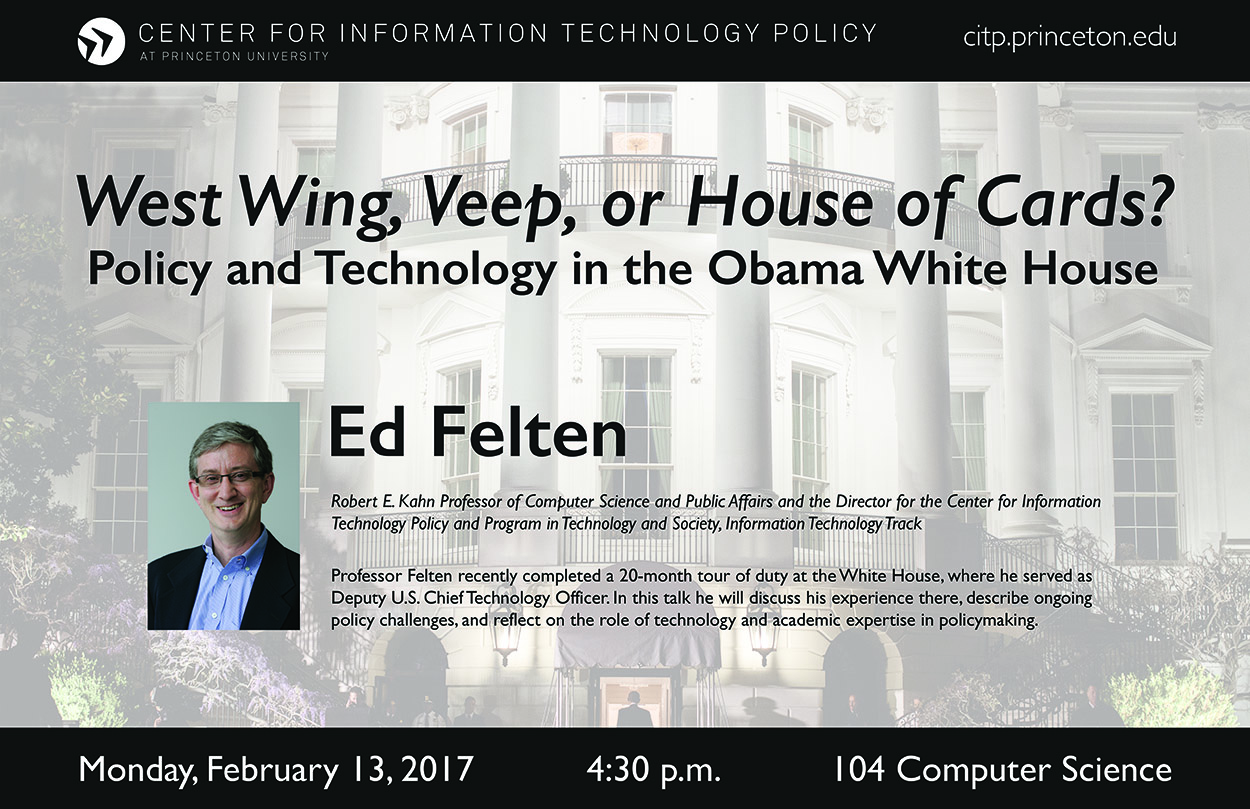CITP Luncheon Speaker Series: Eric Berg – Is This Being Recorded?
Sherrerd Hall, 3rd floor open space Princeton, NJ, United StatesMr. Berg's talk will provide an insider’s view of the strategies, mechanics, common practices, and likely trends involved in the state of government electronic surveillance. His talk will shed light on a number of widely debated issues in public life, and will feature: the process by which the DOJ authorizes electronic surveillance; establishing probable cause to authorize monitoring communications; fighting a surveillance authorization — typical arguments; and trends: “going dark,” white collar investigations, and international concerns.


